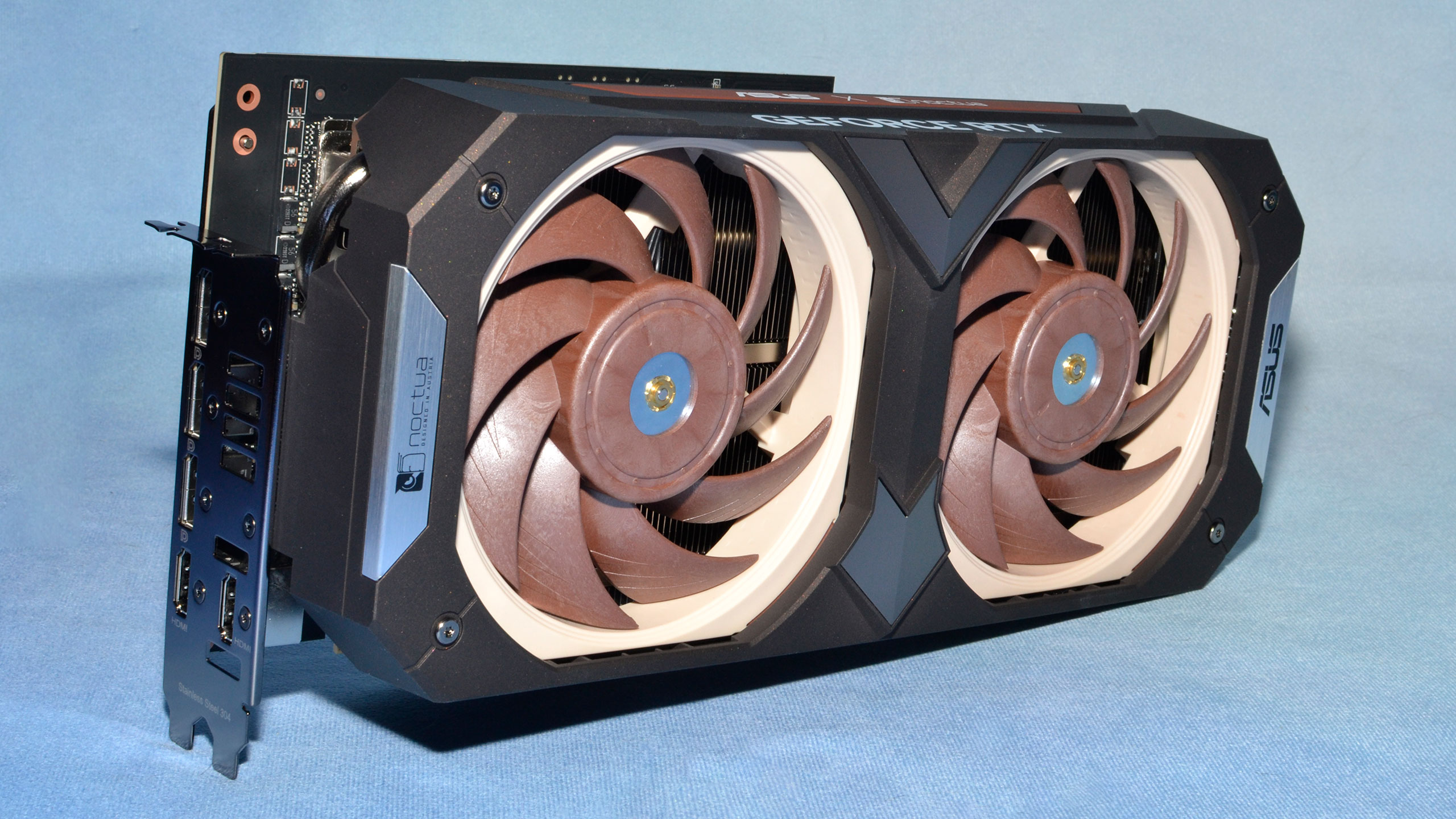
Asus teamed up with Noctua, yet again, to bring a special brown-and-tan-themed version of the RTX 4080 to market. The 4080 already competes with the best graphics cards, albeit at a high price. We have a sample of the Noctua card in hand and will be reviewing it shortly, though we don't expect a massive difference from the vanilla RTX 4080 Founders Edition in terms of performance — the 4080 ranks fourth in our GPU benchmarks hierarchy in rasterization, and second in ray tracing. Instead, this card is all about aesthetics and, hopefully, relative silence.
While the underlying hardware has undoubtedly changed quite a bit, the new RTX 4080 Noctua OC Edition looks nearly the same as the Asus RTX 3070 Noctua Edition we reviewed last year. Except Asus apparently decided a quad-slot card wasn't quite large enough, so the new RTX 4080 Noctua measures 310 x 145 x 87.5 mm, occupying 4.3 slots worth of case space. It's a good thing most people don't plug in expansion cards other than a GPU these days, as only the bottom slot or two on a typical ATX board would still be accessible with this card installed — though you could try for a PCIe riser solution.
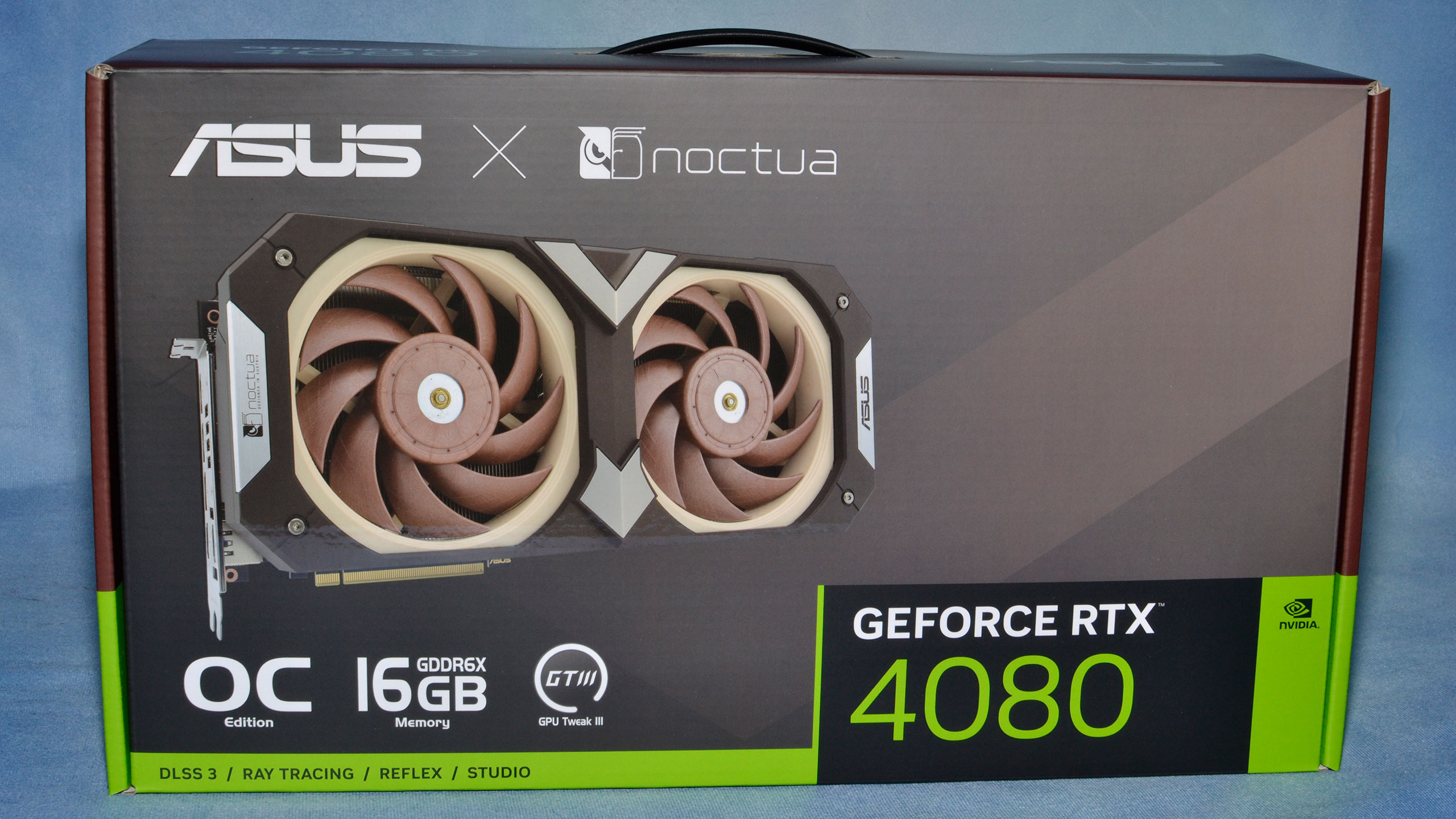
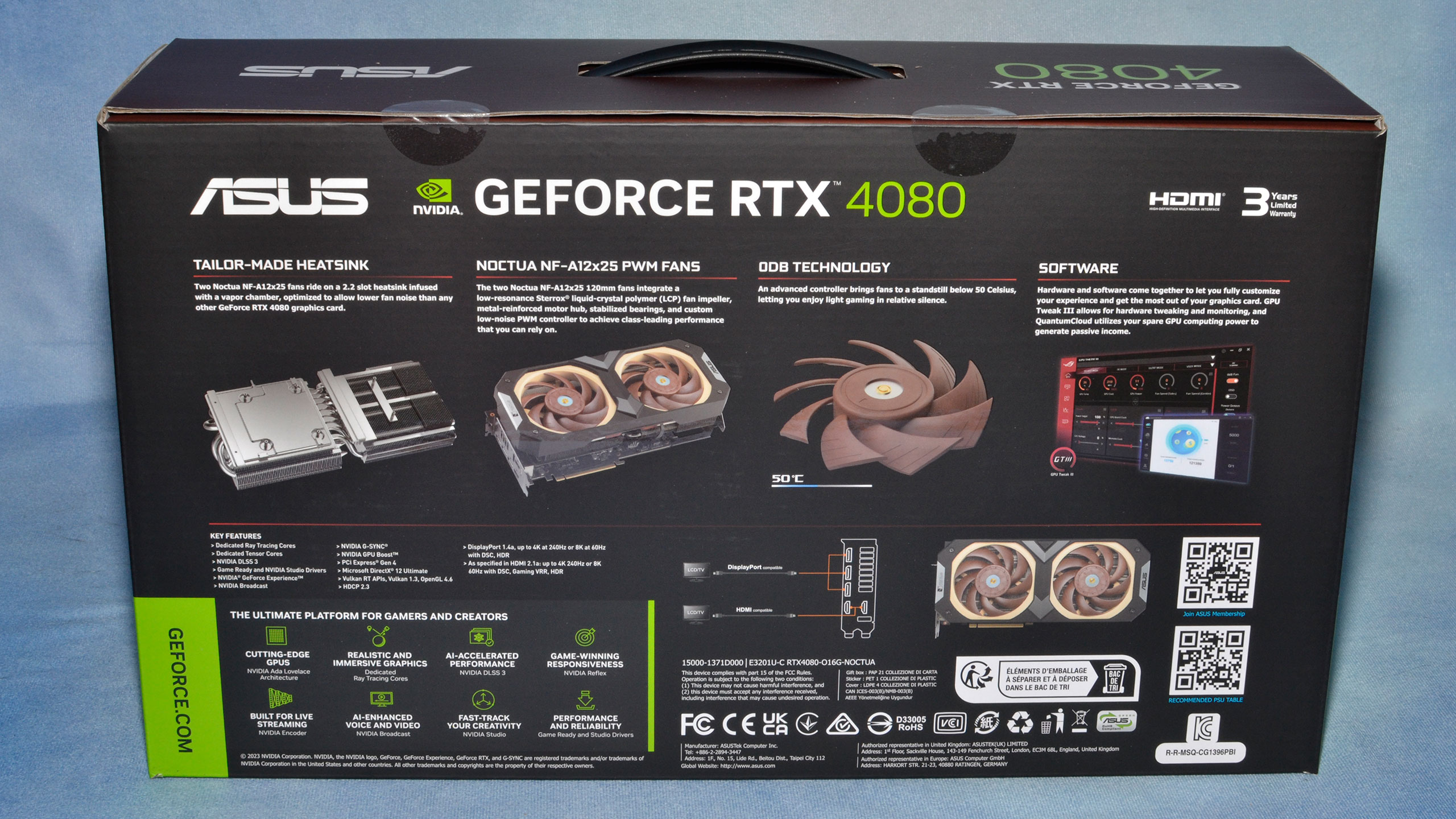
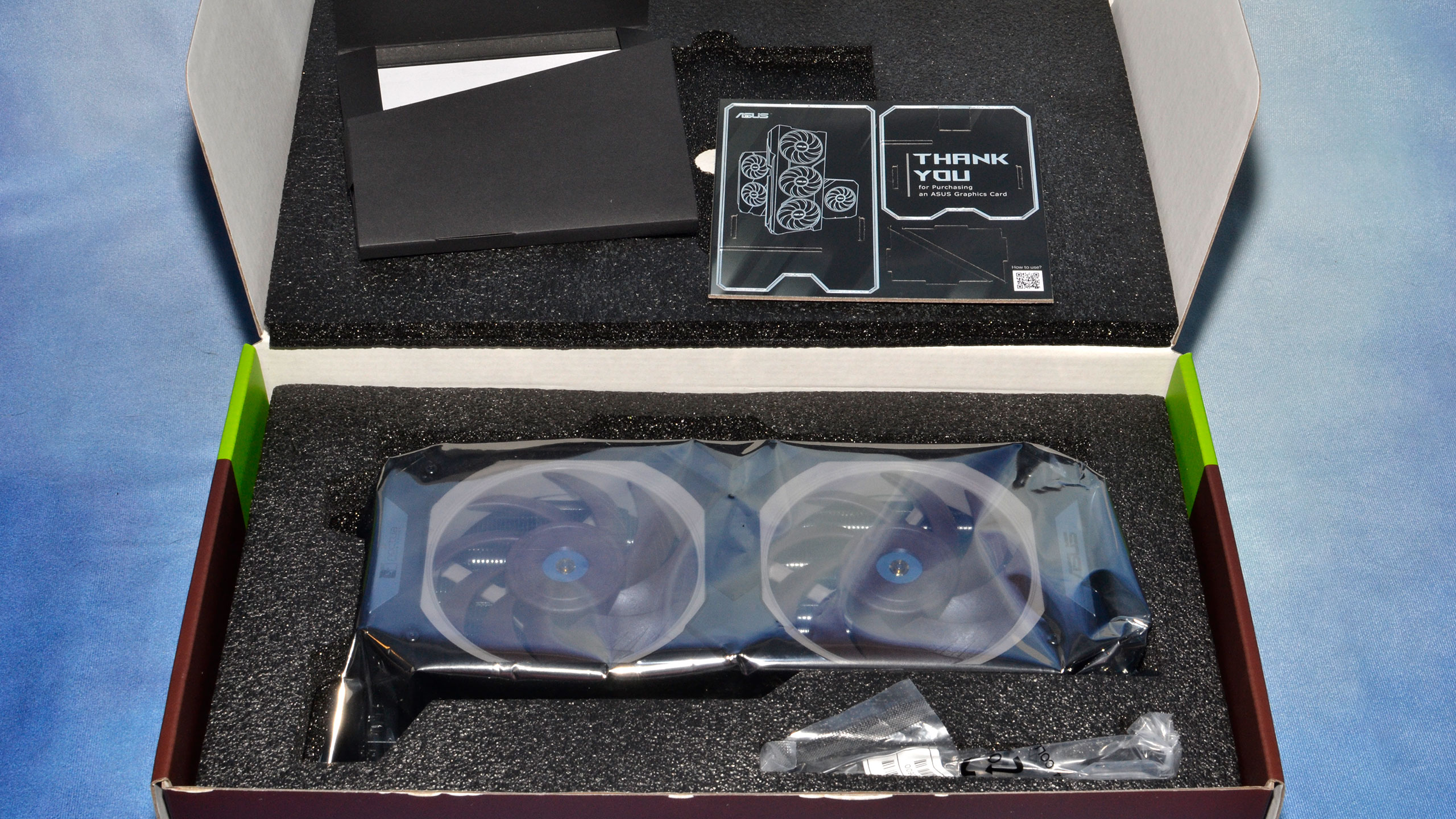
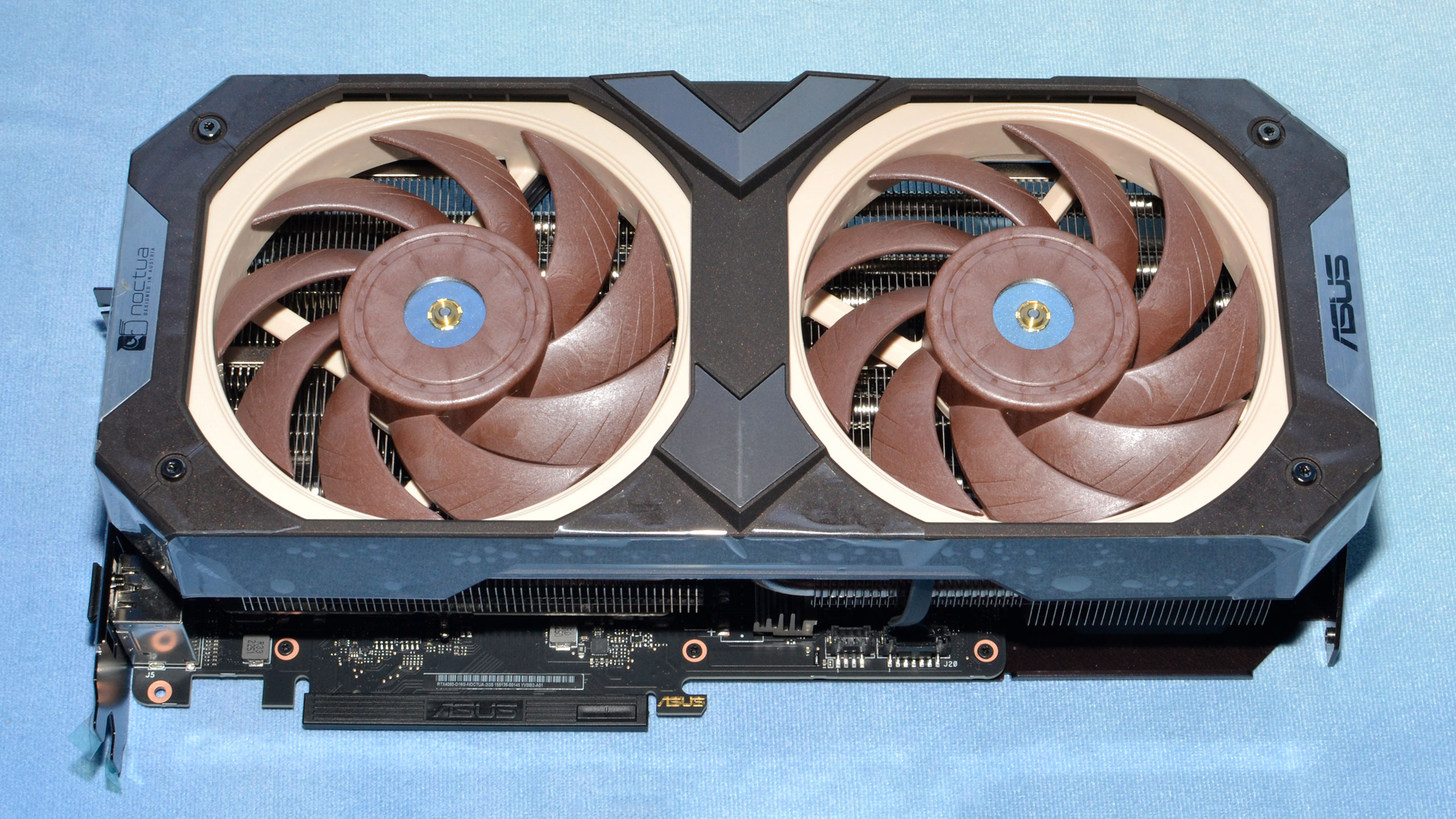
The front of the Asus box is almost as non-descript as the card itself, featuring a large blank area in the top-right. Maybe that's for future product quotes, in which case here's one: This is the biggest, brownest graphics card we've ever reviewed! —Tom's Hardware.
But seriously, you're either going to look at this card and think it's incredibly boring, or you're going to love the minimalist brown-themed aesthetics. Even if the size of the card is anything but "minimal."
As you'd expect, there's virtually no difference in the raw specs for the Asus card compared to the Founders Edition, other than the clock speeds and the resulting TFLOPS. Nvidia's reference clock sits at 2,505 MHz for the RTX 4080, and the Noctua card (in OC mode) pushes that up to 2,625 MHz. In theory that's a 4.8% increase in GPU clocks, but we'll have to see how that plays out in practice.
Nvidia has been quite conservative, as usual, with its rated clock speeds. Across our 15-game test suite, for example, the RTX 4080 Founders Edition averaged between 2,720 MHz to as much as 2,820 MHz. We'll have to see just how high the clocks run with the Asus Noctua card once we get to testing, which should commence shortly. We still don't expect a big difference in graphics performance, though other aspects like noise levels will also be checked.
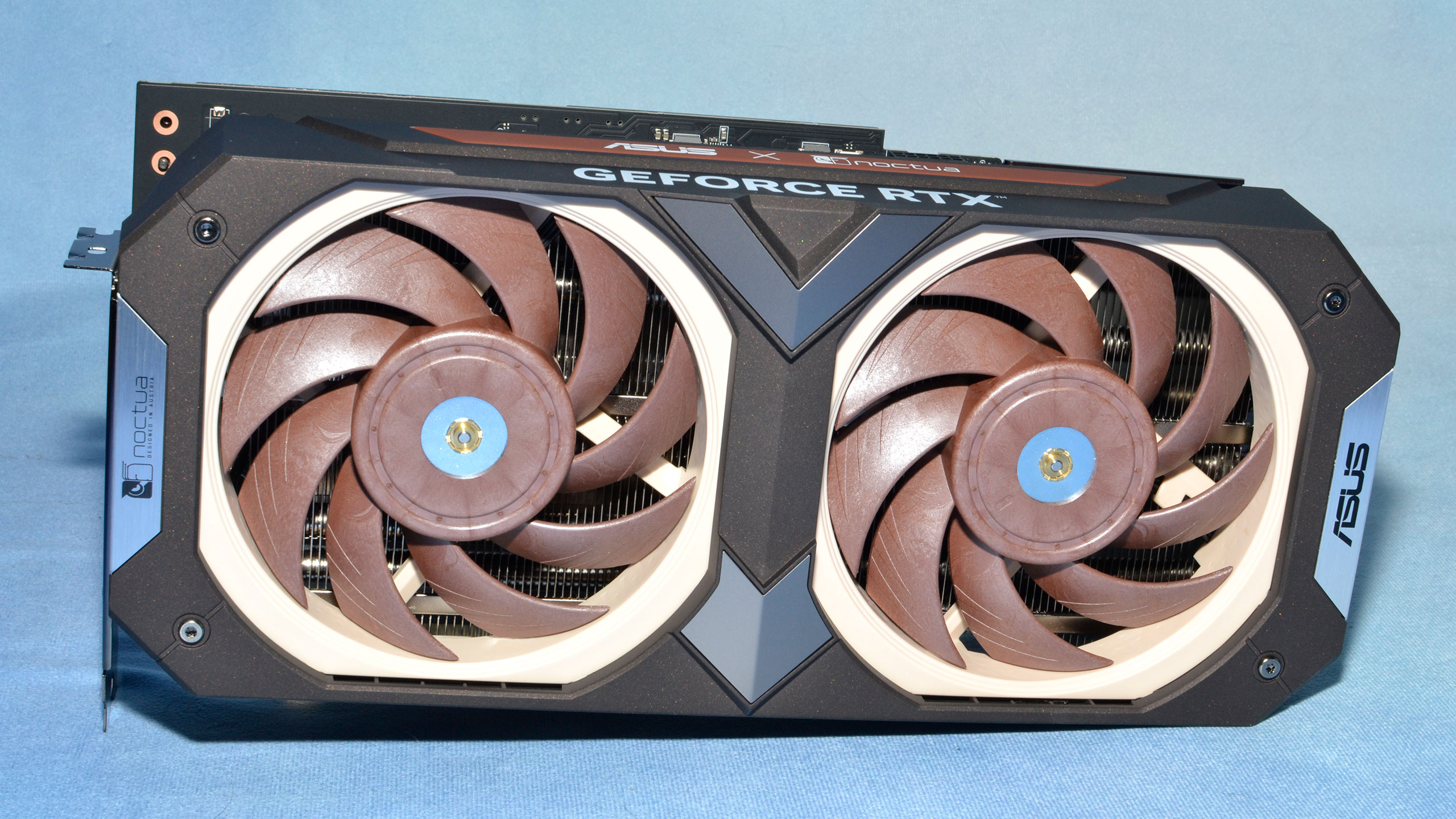

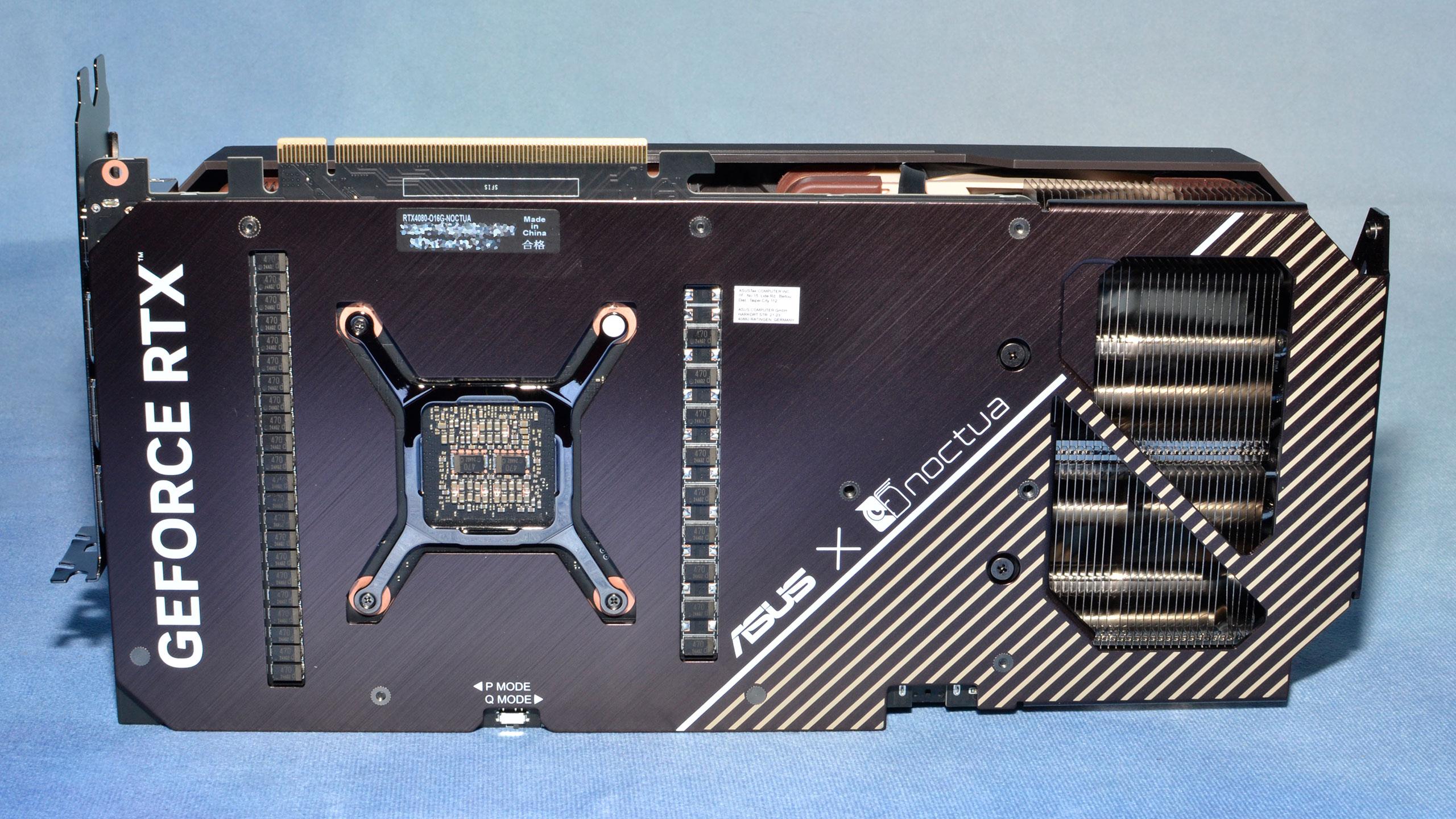
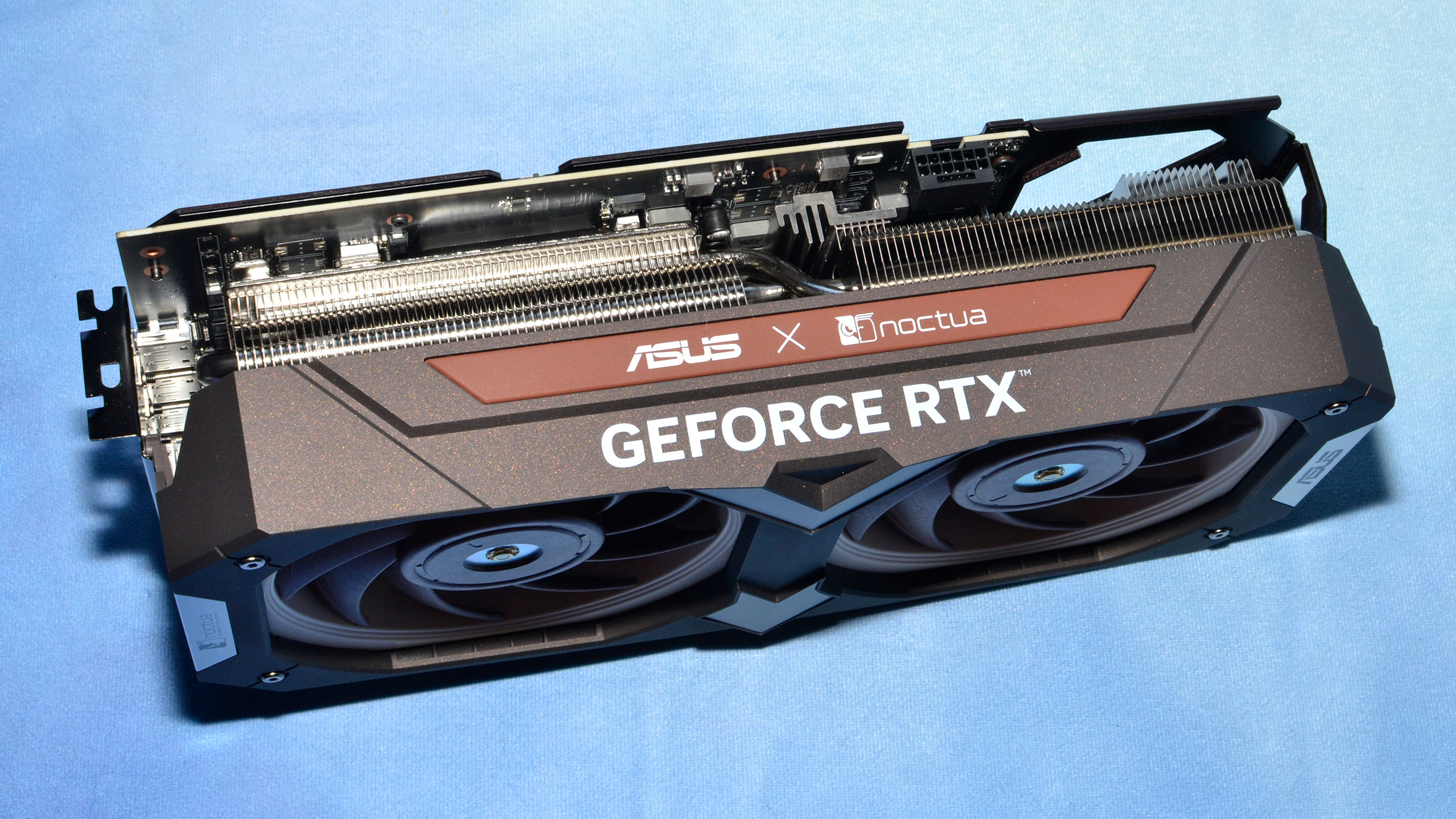


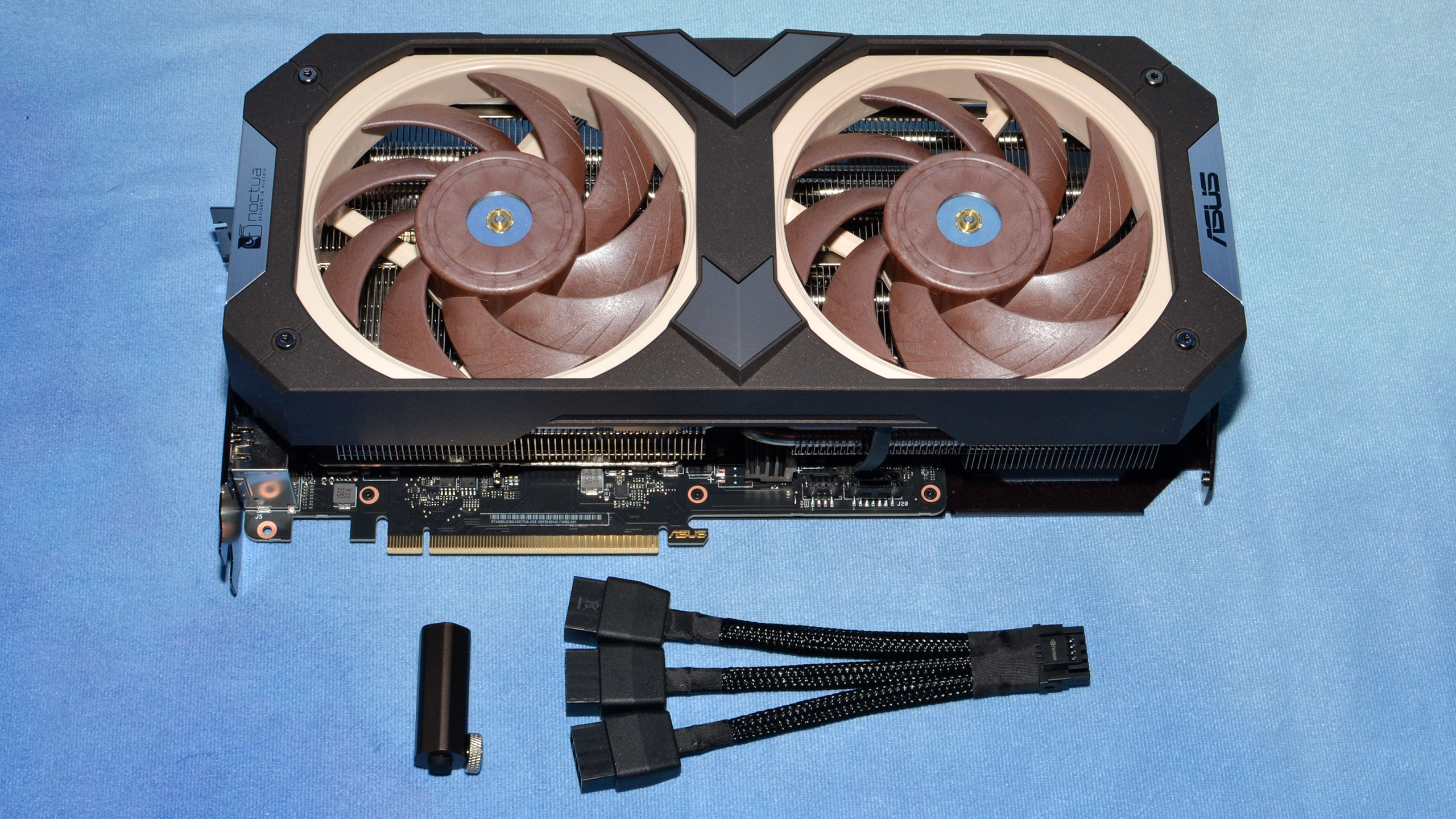
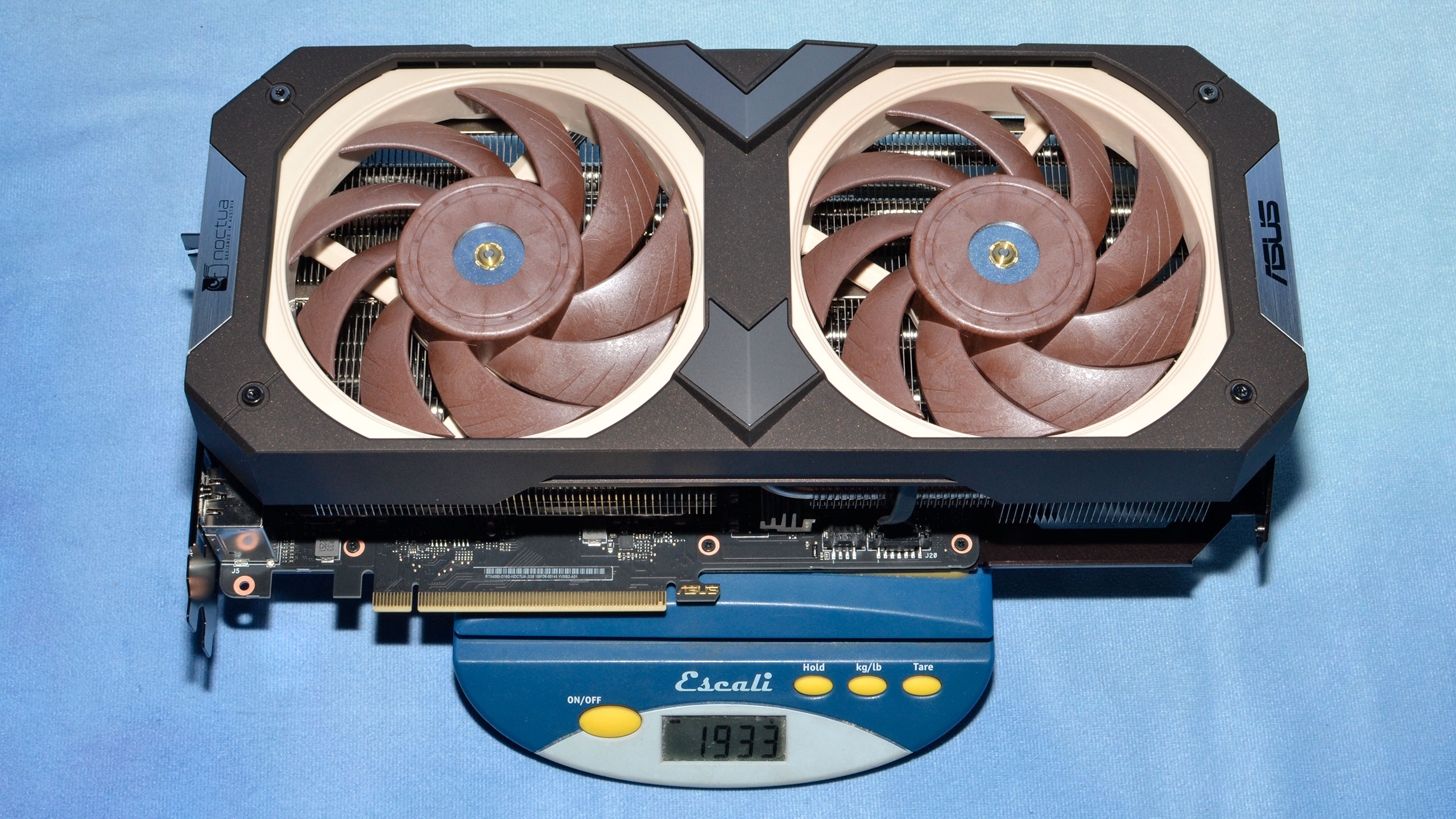
The two large Noctua NF-A12x25 fans dominate the front of the card, as you'd expect. These are designed for good airflow and low noise levels, and combined with the vapor chamber and large radiator we have every reason to expect good results in the temperature and noise testing results.
Naturally, all of the other aspects of the Nvidia Ada Lovelace architecture are present, including support for DLSS 3. I can say that I've opted to enable DLSS 3 while playing Hogwarts Legacy, just because it allows me to max out all the settings at 4K while still running at more than 60 fps. That's using DLSS Quality mode upscaling as well, so higher upscaling factors could further improve performance (at the cost of some visual fidelity). I'm still not convinced the 50–80 percent higher framerates that result really feel significantly faster, though the game certainly looks smoother.
As you can probably guess, the Asus RTX 4080 Noctua OC Edition doesn't come cheap. Nvidia's baseline price sits at $1,199, and Asus' top models typically carry a hefty premium. The official MSRP for the 4080 Noctua OC sits at $1,649, nearly 40% above the baseline models. And you can find many RTX 4080 cards starting right near MSRP, with this MSI RTX 4080 Ventus 3X OC actually selling for $8 below MSRP.
If the Noctua is too rich for your blood, Asus also offers the RTX 4080 TUF Gaming for $1,199, and Amazon has the RTX 4080 TUF Gaming OC for the same price. The base model RTX 4080 ROG Strix meanwhile goes for $1,459 at Newegg, while the RTX 4080 ROG Strix OC costs $1,474 at Amazon. Finally, there's the 4080 ROG Strix White for $1,599 at B&H. The Strix OC cards do have a higher 2,655 MHz boost clock compared to the Noctua version, though that last 30 MHz isn't likely to matter much.

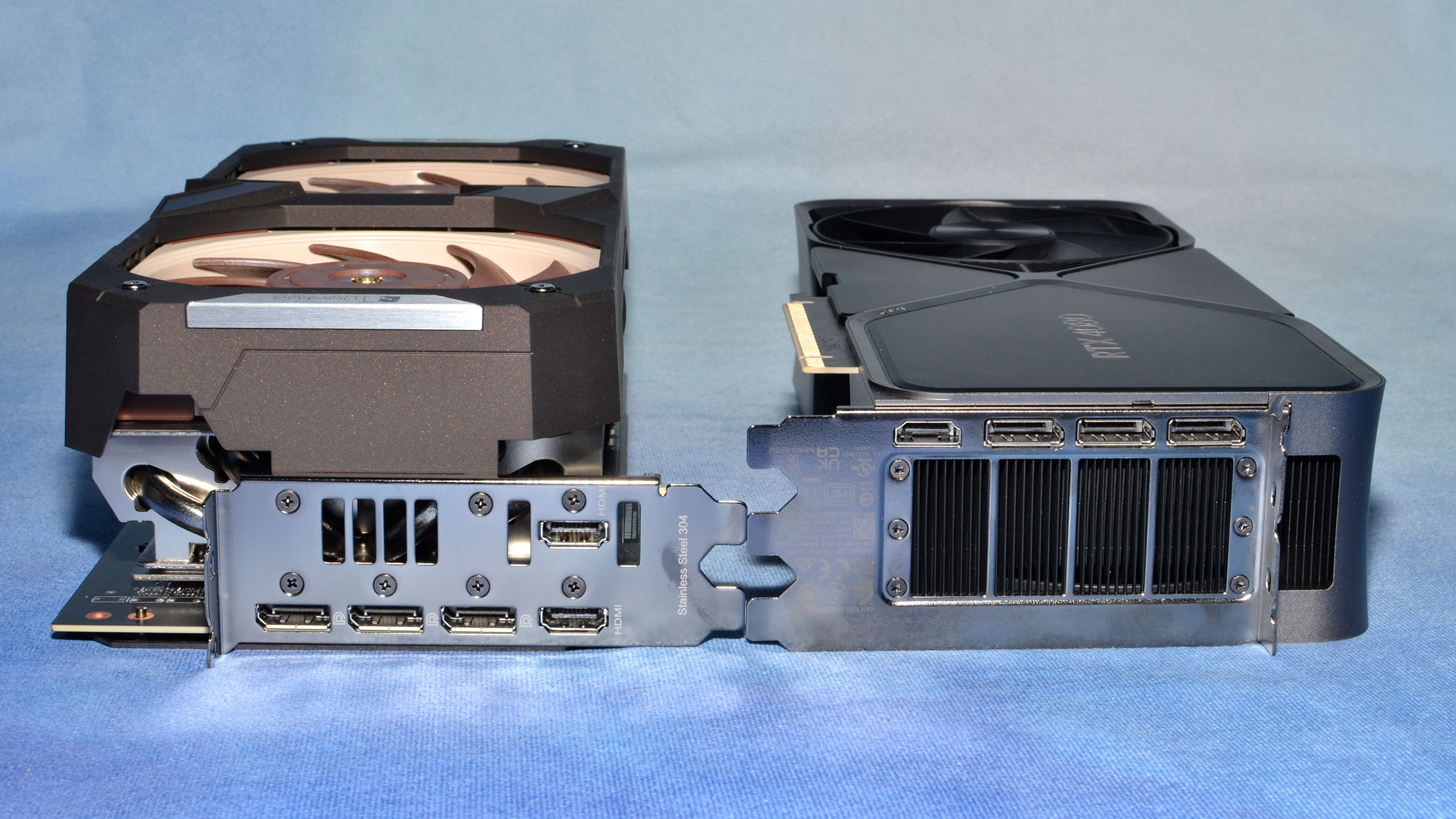
Again, this is a big card, easily dwarfing the RTX 4080 Founders Edition. The RTX 4080 Noctua cards have been announced and should go on sale today, though these are likely to be limited runs and thus relatively rare. Looking at eBay for example, over the past 90 days only five RTX 3070 Noctua cards have been sold, compared to 182 RTX 3070 Strix cards. That doesn't inherently mean Asus manufactures over 35 times as many Strix cards as Noctua cards for the 3070, but it certainly implies finding the Noctua cards will be more difficult.







